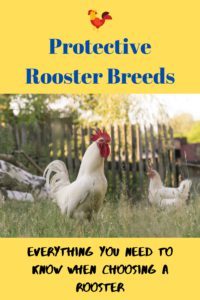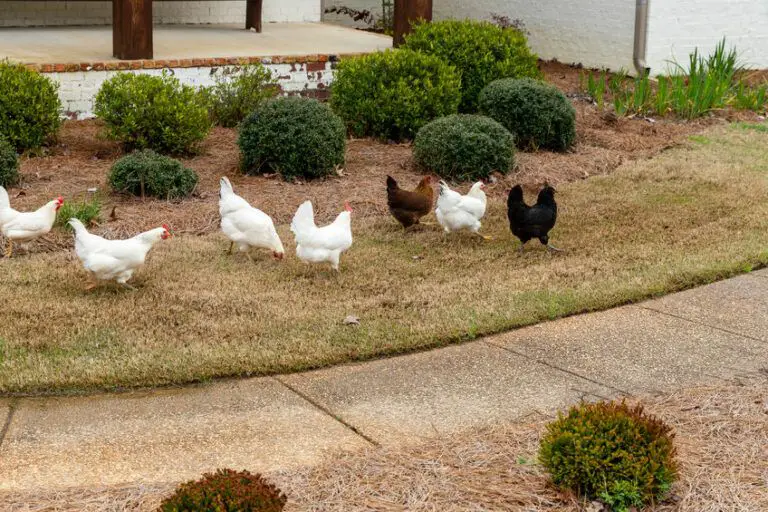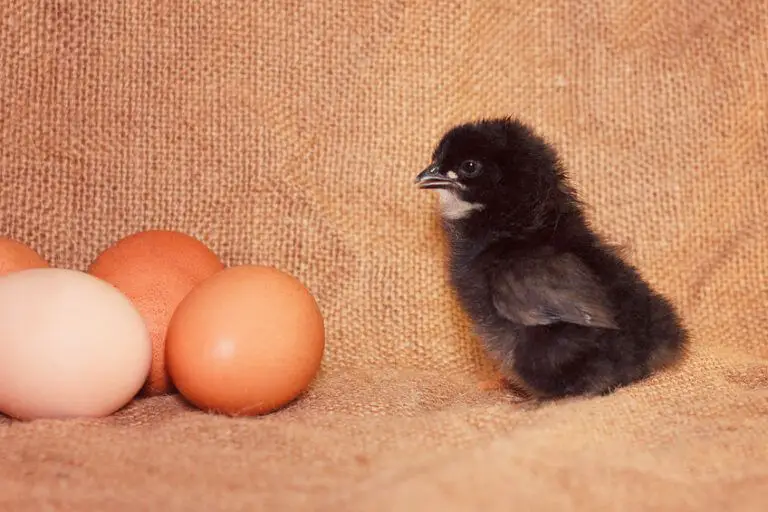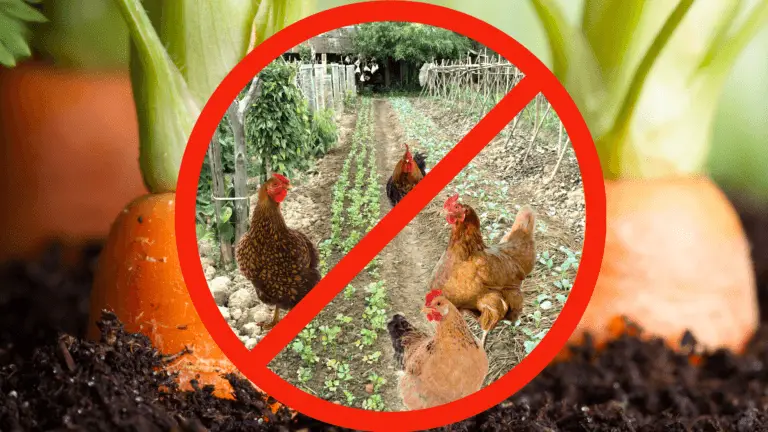Selecting The Perfect Hero For Your Hens – All You Need to Know About Protective Rooster Breeds
Are you looking for the best rooster breeds to protect and watch over your hens?
Roosters don’t come in a “one-size-fits-all” as watchmen for a flock. When choosing a rooster, you must consider several things. The last thing you want to do is introduce a breed of a rooster to your flock that’s aggressive, harmful, and even deadly!
We are going to cover everything you need to know to pick the perfect rooster.
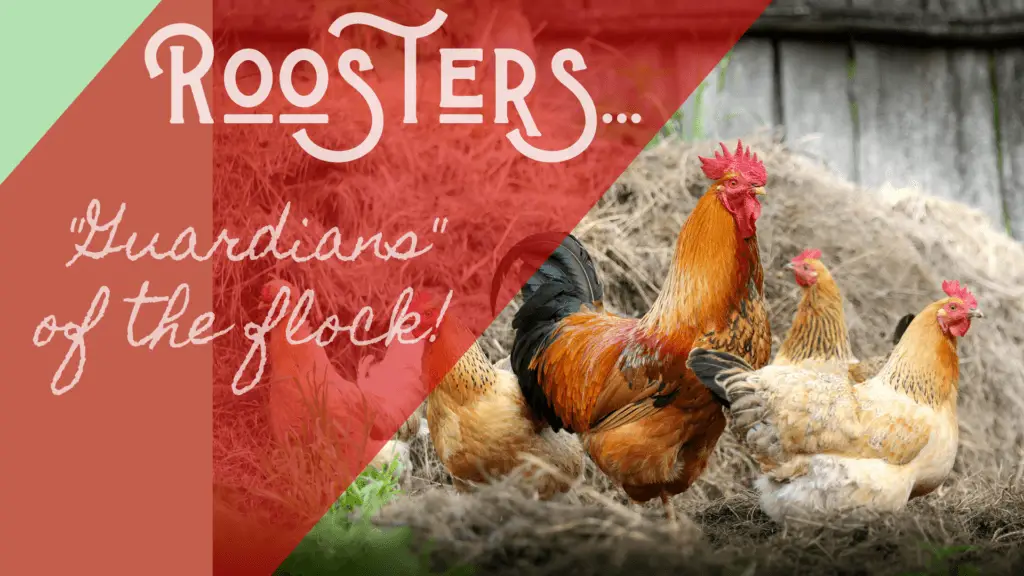
What exactly is a Rooster?
Simply put, a rooster is a male chicken. Roosters play a vital role not only in reproduction but as the protector and leader of a flock. A more technical description can be found on Wikipedia.
There’s a lot of confusion about egg-laying. Hens can lay eggs without roosters around. So, why get a rooster? Those eggs are non-fertile and are merely a source of food. However, to get fertile eggs to hatch for chicks, a rooster must be present in the flock. When roosters and hens mate, the eggs are fertile.
To learn about egg-laying breeds, see our article “Best Egg Laying Chickens -White Eggs, Brown Eggs, And More!“
The most common reasons to have a rooster:
- To mate with hens to be able to hatch chicks.
- To have a “watchdog” over the flock. This is the biggest benefit of having a rooster!
- To add an exciting dynamic to the flock (roosters come in beautiful colors.)
Do I need a rooster to protect my hens?
Roosters defend and protect hens against predators. When you have a rooster, it’s similar to having a security guard watching over your chickens when you aren’t around.
Predators are always on the prowl for their next meal. Whether you have urban backyard chickens or a typical rural flock, you need a rooster to protect the flock. Newbie chicken hobbyists wonder, “Do roosters protect hens?”
Will a rooster protect hens, or do you need to build a pen as adjunct protection?
Perhaps one of the best things about having a rooster is being able to allow your hens to free-range. The confinement of pens limits chicken’s inherent need to explore, forage, and well, just be happy little chickens! A shelter to roost in at night that securely prevents predators from getting in is best. Allow the flock to free-range during the day.
The right kind of rooster will continuously watch over the flock against predators on the ground as well as in the air. When something is spotted, the rooster will warn the flock. To ward off a predator’s attack, a rooster uses its beak and spurs (sharp talons on the leg) to defend itself.
On the flip side, if you don’t have the right kind of rooster, it will run off scared and hide when a predator approaches. This is not something you want in a rooster.
Predators of Chickens
Whether you live in the city or the country, you must contend with predators.
Some chicken owners get a false sense of security, thinking a tall fence will protect their backyard chickens. Even the most towering fence won’t prevent predators. Unwanted critters can climb over and under that fence as well as striking from the air.
Rural chickens are exposed to regional wildlife. Predators target free-ranging flocks in the country. Even keeping rural flocks in a sturdy pen may fail at times due to the craftiness of predatory animals.
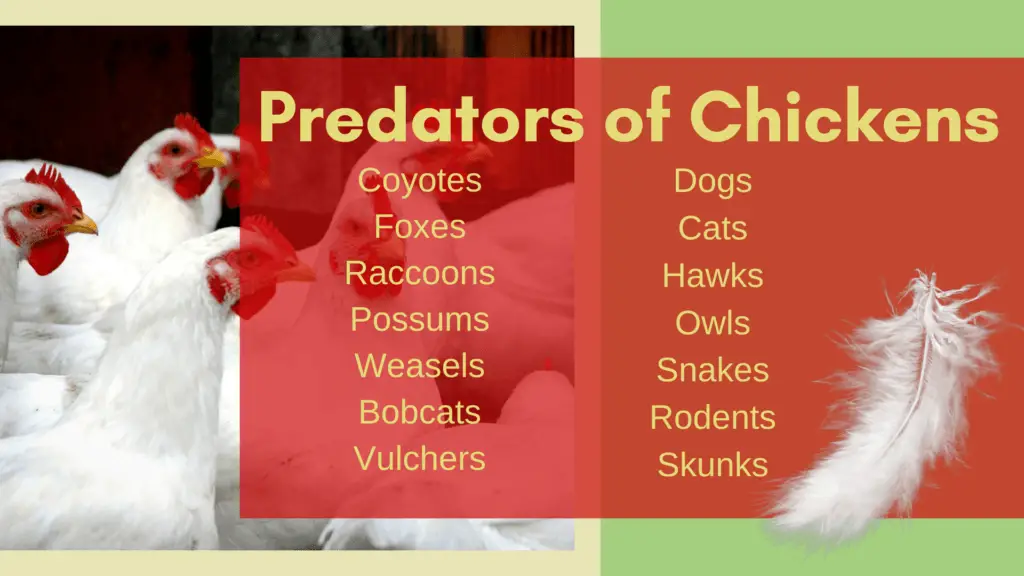
Choosing the RIGHT Breed of Rooster
There are several things to take into consideration when getting a rooster that should perform as a defender. The last thing you want is an overly aggressive rooster that harms the flock or one that runs and hides when it’s scared.
At the top of the pecking order within the chicken community is the rooster. Positions in a flock’s social hierarchy often involve fighting or picking on the others. Because of this “fighting,” it’s highly recommended NOT to have more than one rooster. Roosters can be vicious and even deadly when trying to be the “top dog” of the flock.
So, what are the things you need to consider when choosing a rooster?
Protective Rooster Breeds
Protective rooster breeds are the first thing you want to look for. We have compiled a list of best rooster breeds for backyard flocks as well as rural free-range flocks.
The list is further broken down to help you pick the perfect breed of rooster. For example, if you have small hens, you certainly don’t want large/huge rooster breeds. Additionally, you want gentle rooster breeds if you have children or other pets around. We have taken the guesswork out of avoiding types of fighting roosters that will inflict harm. See our chart below…
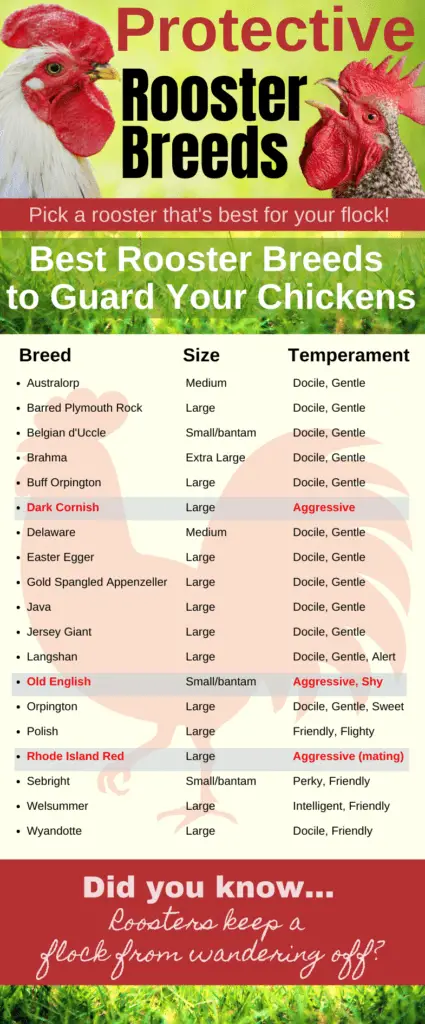
A Final “Cluck” for You!
Knowing more about protective rooster breeds will help you to find your ideal rooster. Again, be sure to keep in mind the size of your chickens when it comes to the size of a rooster.
Although you want a friendly rooster, the aggressive ones such as the Dark Cornish or Old English make great sentries if you don’t have children or pets. They may not be cuddly, but they’ll step up and defend when needed!
Happy “chickening” to you!


